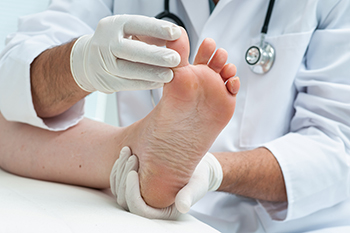
Bacterial and fungal foot infections are common and can cause significant discomfort. Athlete's foot, a fungal infection, is caused by the growth of fungi in warm, damp environments like sweaty shoes or public showers. Symptoms include itching, burning, redness, and peeling skin, often between the toes. Bacterial infections, such as cellulitis, occur when bacteria enter through cuts or blisters, causing redness, swelling, pain, and sometimes fever. Both conditions can worsen if left untreated. Treatment for athlete’s foot typically involves antifungal creams or oral medications, while bacterial infections may require antibiotics. Keeping the feet clean and dry, wearing breathable footwear, and using antifungal powders can help prevent infections. A podiatrist can diagnose and treat foot infections, providing antifungal or antibiotic prescriptions and offering guidance on proper foot hygiene. If you are experiencing symptoms of a foot infection, it is important to seek care. It is suggested that you schedule an appointment with a podiatrist to get the right treatment and avoid complications.
Athlete’s foot is an inconvenient condition that can be easily reduced with the proper treatment. If you have any concerns about your feet and ankles, contact Cory Brown, DPM from Cory Brown, DPM. Our doctor will treat your foot and ankle needs.
Athlete’s Foot: The Sole Story
Athlete's foot, also known as tinea pedis, can be an extremely contagious foot infection. It is commonly contracted in public changing areas and bathrooms, dormitory style living quarters, around locker rooms and public swimming pools, or anywhere your feet often come into contact with other people.
Solutions to Combat Athlete’s Foot
- Hydrate your feet by using lotion
- Exfoliate
- Buff off nails
- Use of anti-fungal products
- Examine your feet and visit your doctor if any suspicious blisters or cuts develop
Athlete’s foot can cause many irritating symptoms such as dry and flaking skin, itching, and redness. Some more severe symptoms can include bleeding and cracked skin, intense itching and burning, and even pain when walking. In the worst cases, Athlete’s foot can cause blistering as well. Speak to your podiatrist for a better understanding of the different causes of Athlete’s foot, as well as help in determining which treatment options are best for you.
If you have any questions please feel free to contact our office located in Lewiston, ID . We offer the newest diagnostic and treatment technologies for all your foot and ankle needs.
